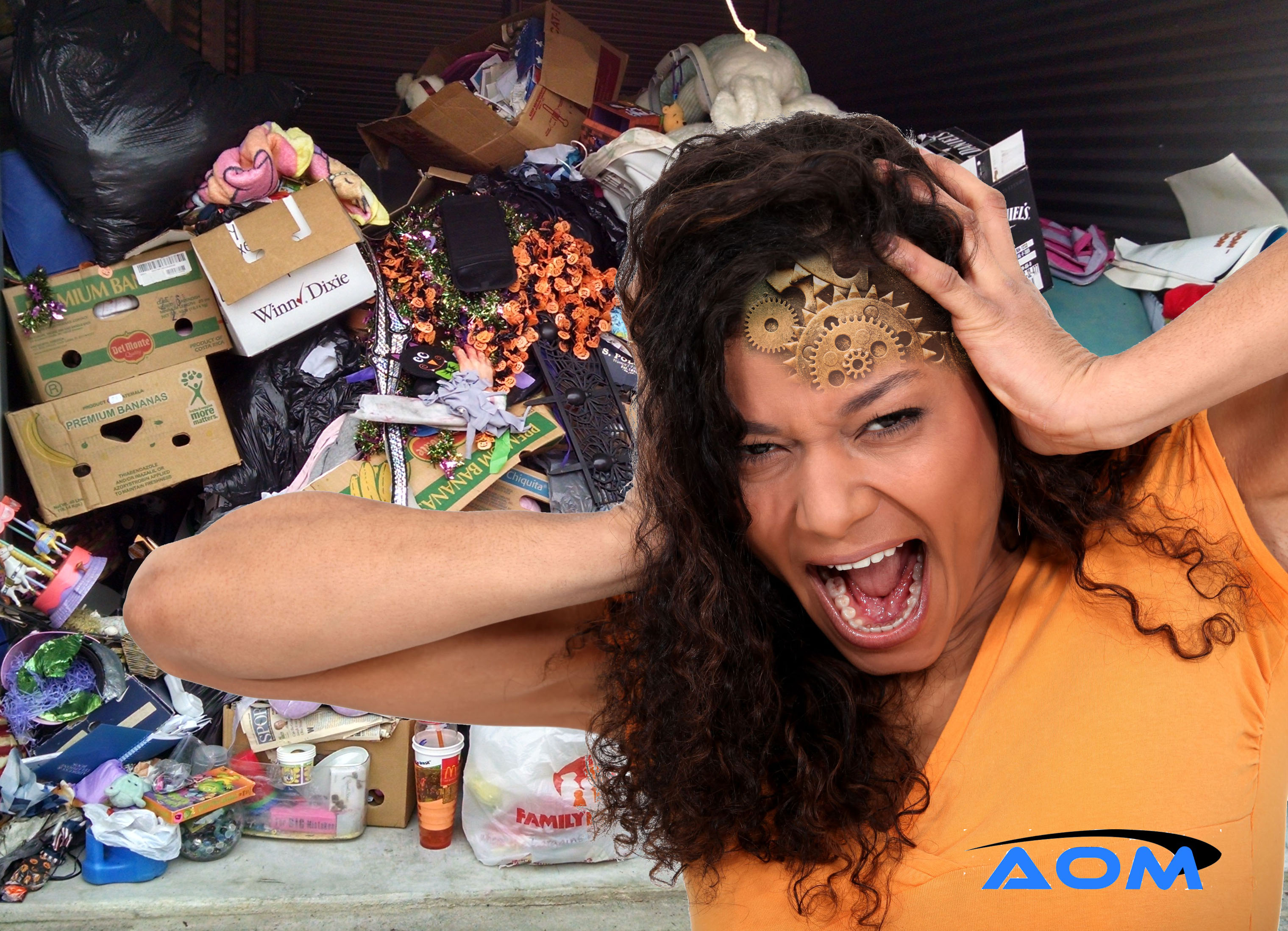Be Mindful Of Clutter Cleanup
Clutter can gradually build up over time. We may hold on to post-its and documents thinking we are going to need them later. That book may have sat on your table for a couple years, having been left with the intention of someday reading. Clothes build up because once those 5 lbs. are lost or that style comes back you intend to wear them again. We need to be honest with ourselves though. Are we really going to use these things? Did we really like those must-have, trendy heels or need that extra power tool “just in case?” Probably not. Now that you have these items, and maybe even doubles, can you part with them? Clutter may appear to be only physically encompassing but the correlation between clutter and the mind is evident.
According to research conducted at Yale, there are two areas of the brain that associate pain with letting go of items. Alright, time to get scientific here. The two parts of the brain associating the pain are the anterior cingulate cortex (ACC) and the insula. The anterior cingulate cortex is located towards the frontal lobe and involves the decision making process as well as emotional regulation. It also regulates the physiological processes (i.e. blood pressure and heart rate). The insula is also known as the insular cortex. The insula is the sensory region for the gut and the body. It is connected with interoception (the sensitivity to stimuli, in other words, our sensitivity to sensations originating in our body), body movement, self-recognition, emotional awareness, visual and auditory awareness of movement, attention, etc. The insula and ACC regions of the brain activate in response to stimuli, the feeling of physical pain for example. In the context of parting with items, both the insula and the ACC respond to the thought/action of giving up the items. Similar to the feeling of physical pain when touching something too hot, the brain correlates the loss of valued belongings with something that causes physical pain. The act of touching physical items actually helps to develop emotional attachment, and the longer the individual has physical contact with an item, the more valuable the item will be perceived. Now that the science behind your brain and the attachment of physical objects is clarified, it is time to address the impact of clutter on your mind.

Clutter can be physically obstructing, but it can also have a negative impact on the brain. Physical clutter can impede on a person’s cognitive behavior. A study conducted by the Princeton University Neuroscience Institute revealed that the surrounding clutter can easily draw attention away from the work at hand, making the ability to focus and process information difficult and thereby decreasing task performance. Senses will become overwhelmed, and the inability to focus and perform tasks leads to additional stress and anxiety. The added stress and additional effort towards concentration can become physically draining. In addition, the inability to find things can add to the frustration. Soon those valued possessions become overwhelming clutter.
Initially those possessions seem to be the world, valuable to their owner. The owner may have developed an emotional attachment to his/her belongings or believe there is a future need for them. Prolonged contact with items can even increase that attachment. Getting rid of said items can be difficult, and the brain’s correlation of parting with the items and pain endorses hoarding habits. However, the accumulation of these possessions can quickly become chaos. The distraction of clutter can be mentally disruptive, decreasing a person’s ability to focus, process information, and perform tasks, and in turn, increase stress and frustration. Deciding to organize and decrease clutter can be difficult but it will be empowering. External resources such as family, friends or professional cleaning companies such as Address Our Mess can be utilized to help combat clutter and take back your life. Don’t let your brain trick you into believing parting with your clutter is the end of the world. Now that you are mindful of how the brain works in response to these possessions, take charge and reclaim a sense of peace.
If needing a fresh start to clear the mind and home of clutter, call Address Our Mess for further assistance with cleaning up your place to help clear your mind and home of the massive clutter.